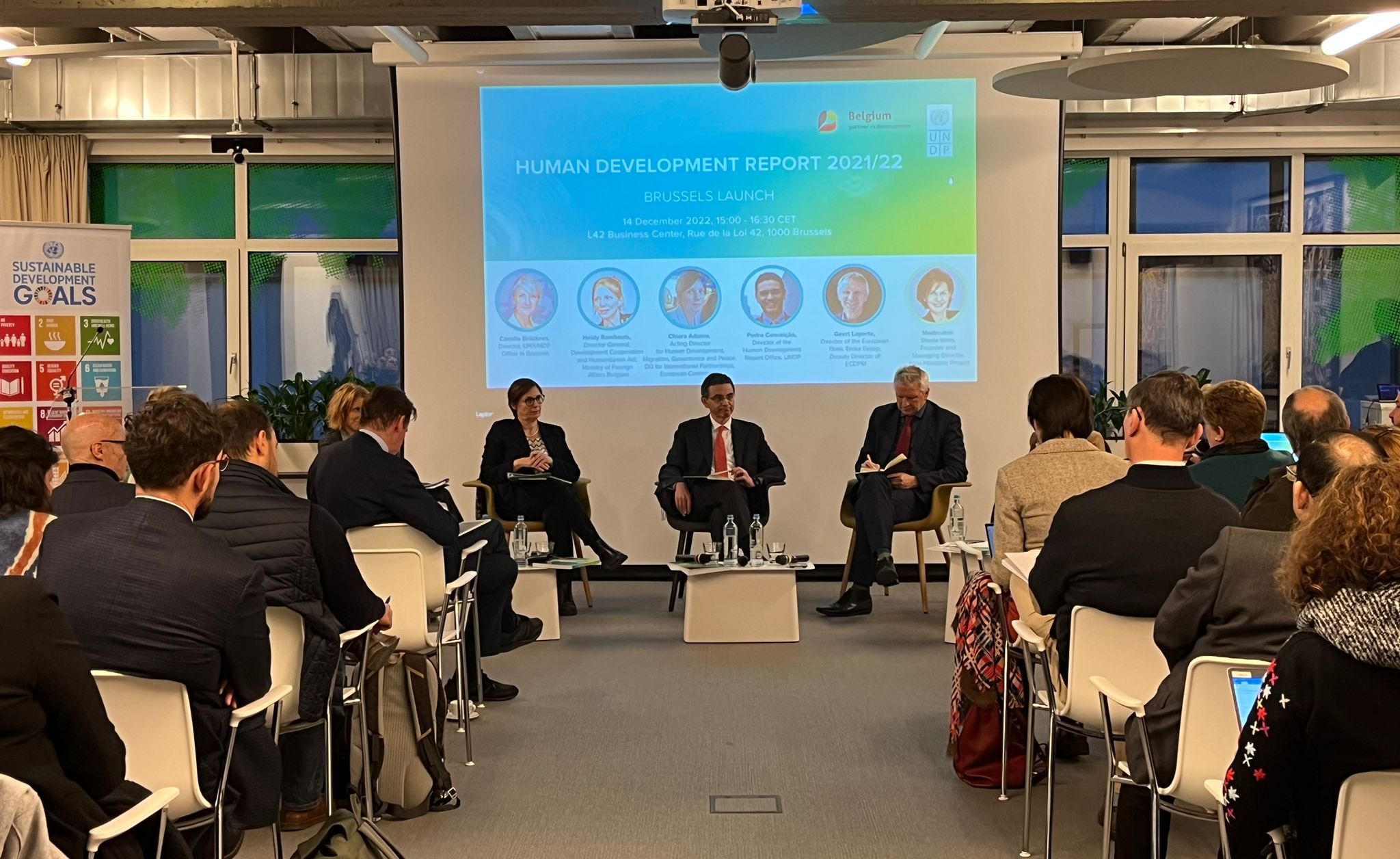UNDP’s flagship Human Development Report 2021/22 launched in Brussels
Multiple crises halt progress as 9 out of 10 countries fall backwards in human development
December 13, 2022

The latest Human Development Report argues that layers of uncertainty are stacking up and interacting to unsettle life in unprecedented ways.
14 December 2022 – The last two years have had a devastating impact for billions of people around the world, when crises like COVID-19 and the war in Ukraine hit back-to-back, and interacted with sweeping social and economic shifts, dangerous planetary changes, and massive increases in polarization.
The latest Human Development Report, “Uncertain Times, Unsettled Lives: Shaping our Future in a Transforming World”, launched today in Brussels by the UN Development Programme and the Ministry of Foreign Affairs, Foreign Trade and Development Cooperation of Belgium, argues that layers of uncertainty are stacking up and interacting to unsettle life in unprecedented ways and that without a sharp change of course, we may be heading towards even more deprivations and injustices.
“In a world defined by uncertainty, we need a renewed sense of global solidarity to tackle our interconnected, common challenges”, said Camilla Bruckner, Director of the UN and UNDP Office in Brussels. “We are very grateful to Belgium, one of our core partners, for its unwavering support which allows us to help the world’s vulnerable countries as they battle poverty and inequality, work towards sustainable development, and build resilience to crises and shocks”.
For the first time in the 32 years that UNDP have been calculating it, the Human Development Index, which measures a nation’s health, education, and standard of living, has declined globally for two years in a row. Human development has fallen back to its 2016 levels, reversing much of the progress towards the Sustainable Development Goals.
The reversal is nearly universal as over 90 percent of countries registered a decline in their HDI score in either 2020 or 2021 and more than 40 percent declined in both years, signaling that the crisis is still deepening for many.
While some countries are beginning to get back on their feet, recovery is uneven and partial, further widening inequalities in human development. Latin America, the Caribbean, Sub-Saharan Africa and South Asia have been hit particularly hard.
The report explores why the change needed isn’t happening and suggests there are many reasons, including how insecurity and polarization are feeding off each other today to prevent the solidarity and collective action we need to tackle crises at all levels. New calculations show, for instance, that those feeling most insecure are also more likely to hold extreme political views.
“In an age of interacting uncertainties, the risk of paralysis and inaction looms. Yet, as the Human Development Report aptly shows, uncertainty comes with challenges but also with opportunity. Partnership, solidarity, inclusion and trust are the guiding principles through which the Belgian Development Cooperation is leaving no one behind”, said Heidy Rombouts, Director General, Development Cooperation and Humanitarian Aid, Ministry of Foreign Affairs, Foreign Trade and Development Cooperation of Belgium.
To chart a new course, the report recommends implementing policies that focus on investment — from renewable energy to preparedness for pandemics, and insurance—including social protection— to prepare our societies for the ups and downs of an uncertain world. While innovation in its many forms— technological, economic, cultural—can also build capacities to respond to whatever challenges come next.
“To navigate uncertainty, we need to double down on human development and look beyond improving people’s wealth or health,” says UNDP’s Pedro Conceição, the report’s lead author. “These remain important. But we also need to protect the planet and provide people with the tools they need to feel more secure, regain a sense of control over their lives and have hope for the future.”

 Locations
Locations